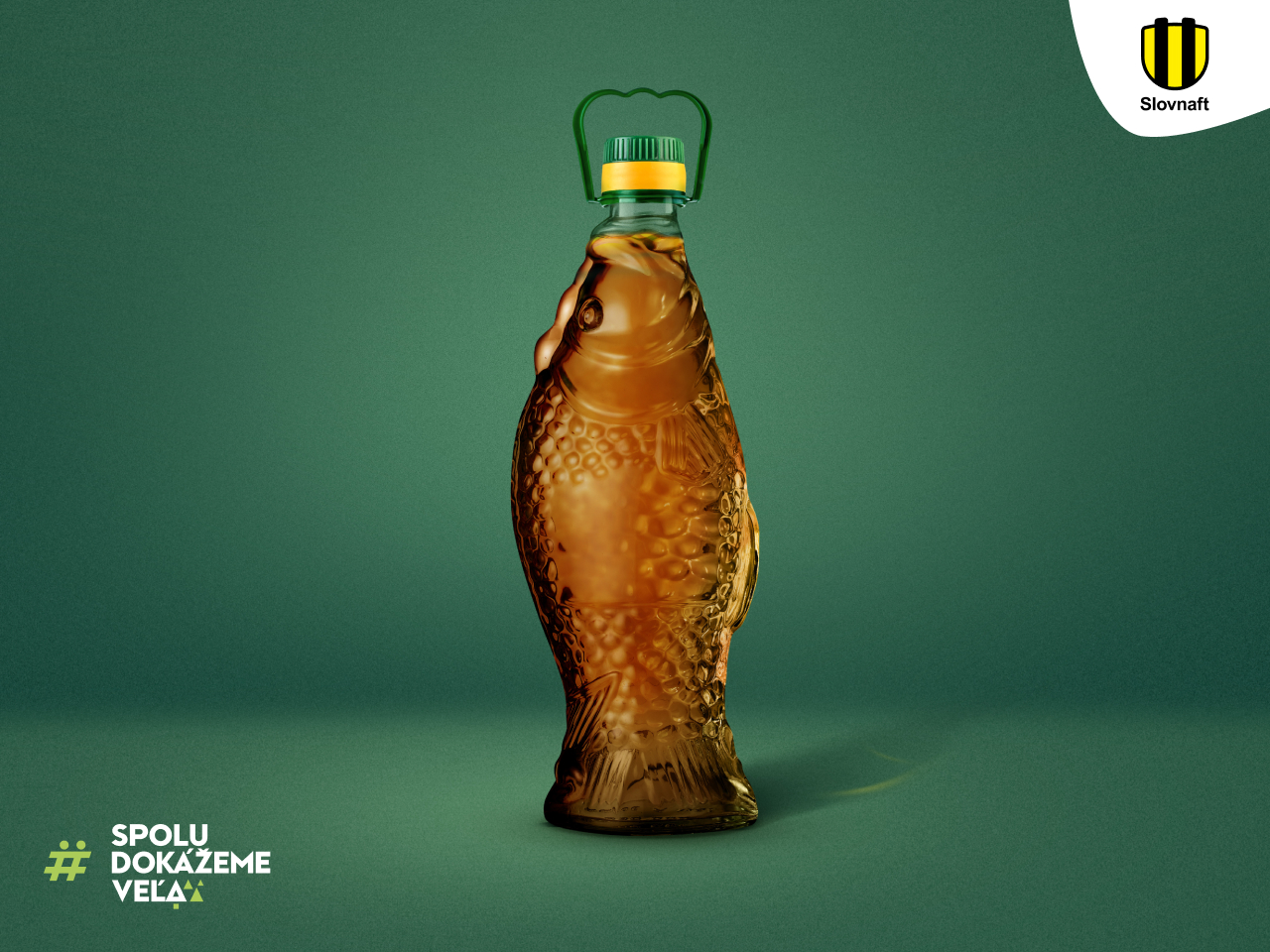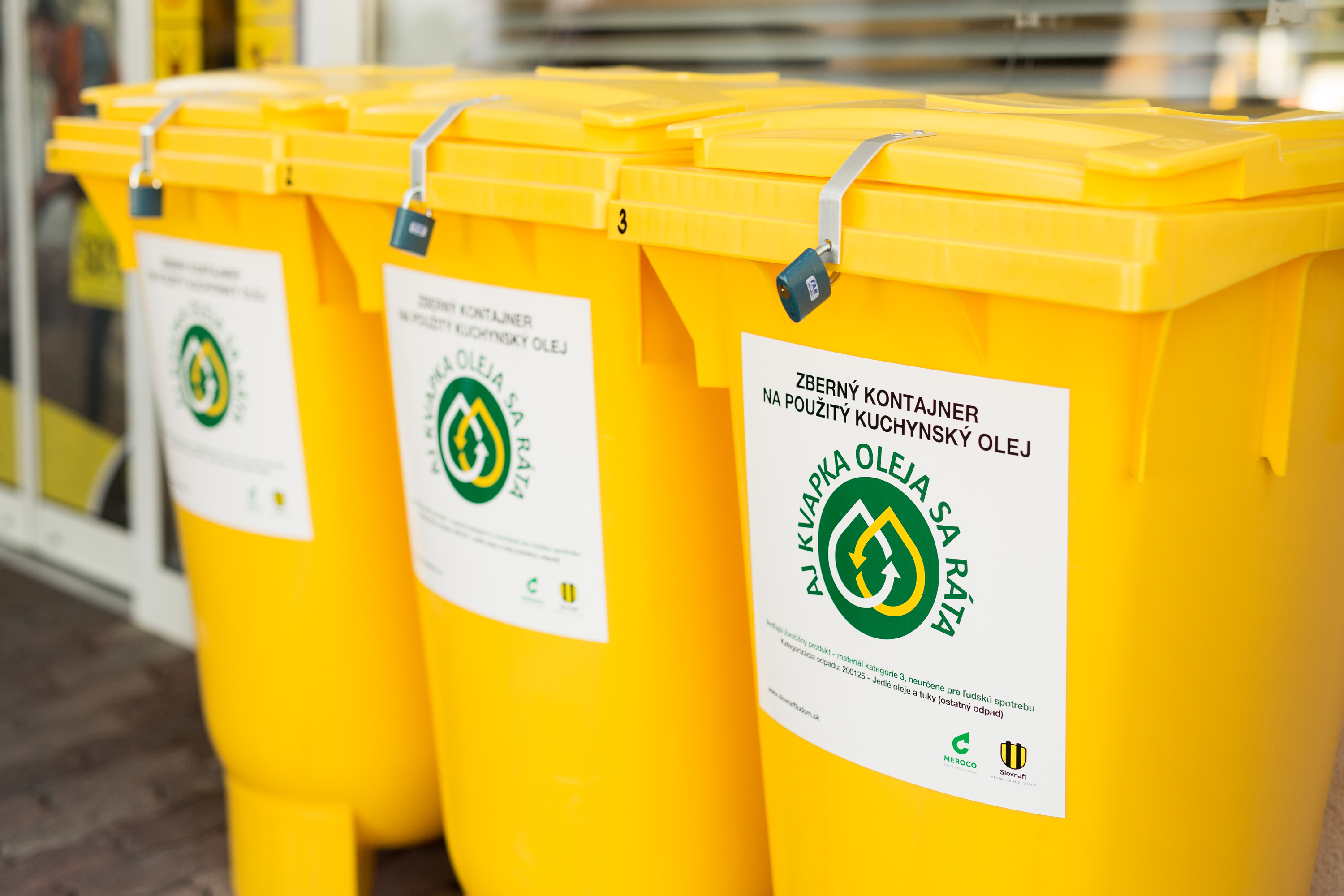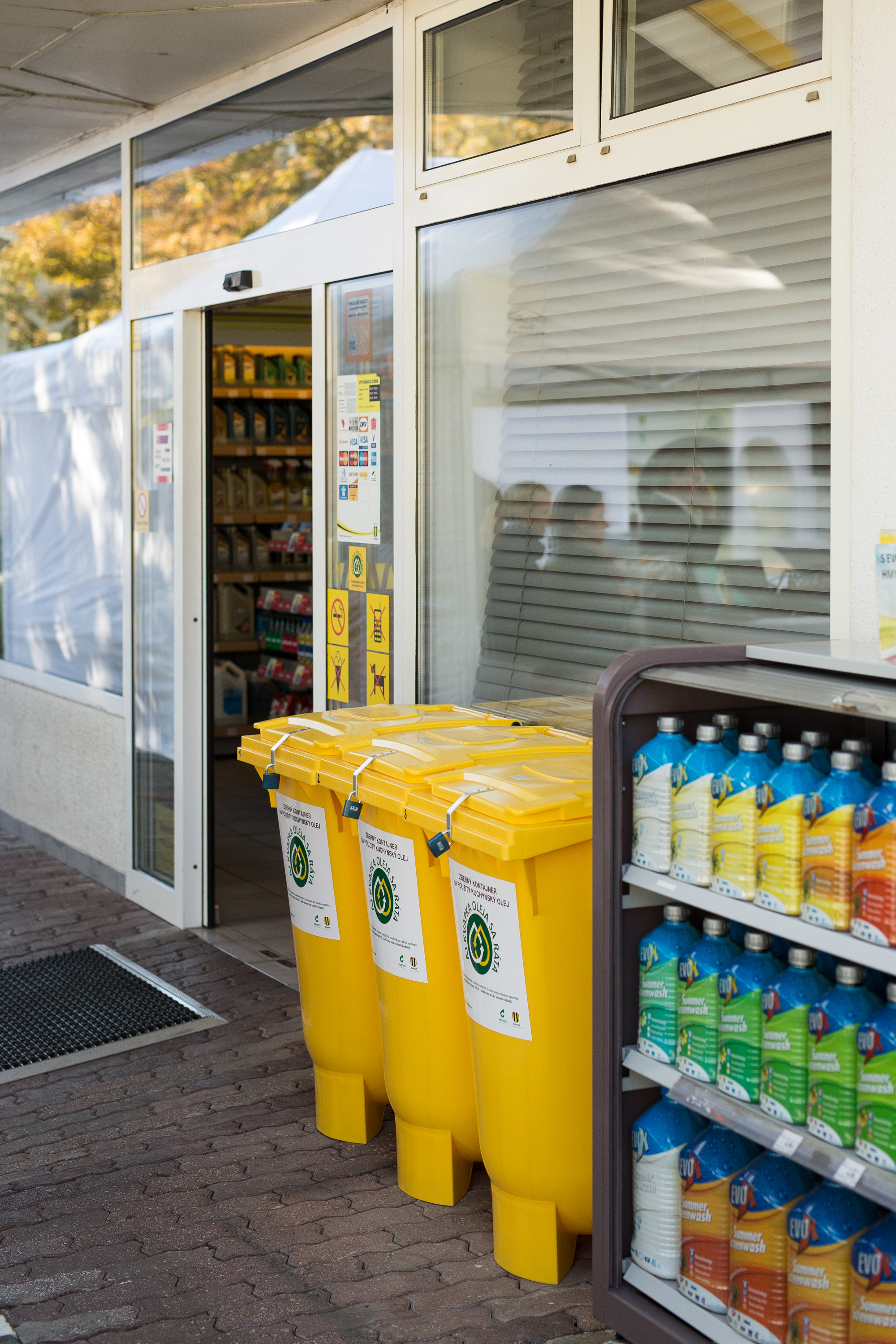Hundreds of tons of used cooking oil separated by customers through Slovnaft petrol stations
More than 400 tonnes of used cooking oil have already been brought by customers to Slovnaft petrol stations for recycling. The service of collecting oil from households has been offered by the largest network of petrol stations for more than 11 years. From collected oil, the partner company Meroco produces a biofuel component, which Slovnaft adds to diesel fuel. The biofuel component from used cooking oil significantly reduces greenhouse gas emissions.
Ten years ago, most households in Slovakia separated only paper and plastics. Used cooking oil usually ended up in the sewer or, in the worst case, in the garden behind the house. Slovnaft started collecting used cooking oil from households in 2011, and at that time the service was more of an awareness-raising project than an activity with a real environmental impact. Gradually, however, people's attitude towards the oil from their kitchens has changed and separating used cooking oil is now a natural part of most households. You can drop off used cooking oil at 212 service stations in 118 towns and cities.
"We started out in the green, so to speak, and now collecting used cooking oil is a matter of course, even a waste management obligation for municipalities. We are pleased that our activity - an innovative service for customers at the time of its inception - has become an inspiration for other commercial entities. We see that people care about nature. That is why oil collection is deeply integrated into our environmental activities and our service offer," says Anton Molnár, spokesperson for Slovnaft.
In the first three quarters of this year, customers of Slovnaft petrol stations brought and handed over for recycling more than 47 tonnes of used cooking oil, which is 9% more than in the same period a year ago. This is an additional 47 tonnes of oil that did not end up in the sewer or in nature.
"We see the Christmas period as a time when we cook, bake and fry more at home. We therefore expect that, as in previous years, the consumption of oil will again increase and consequently the amount that people take away for further processing. The more oil that ends up in the harvest, the better for nature. This way we can do a lot together," says A. Molnár.
It is a good idea to collect used cooking oil in a plastic bottle or in its original packaging so that the glass container does not break during transport and the oil does not deteriorate. Before pouring, it is important to let it cool and strain it through a sieve so that no food residues remain. The collected cooking oil should be taken to the filling station and handed over to the attendant. For every deciliter of oil, BONUS klub members will receive one BONUS point.






